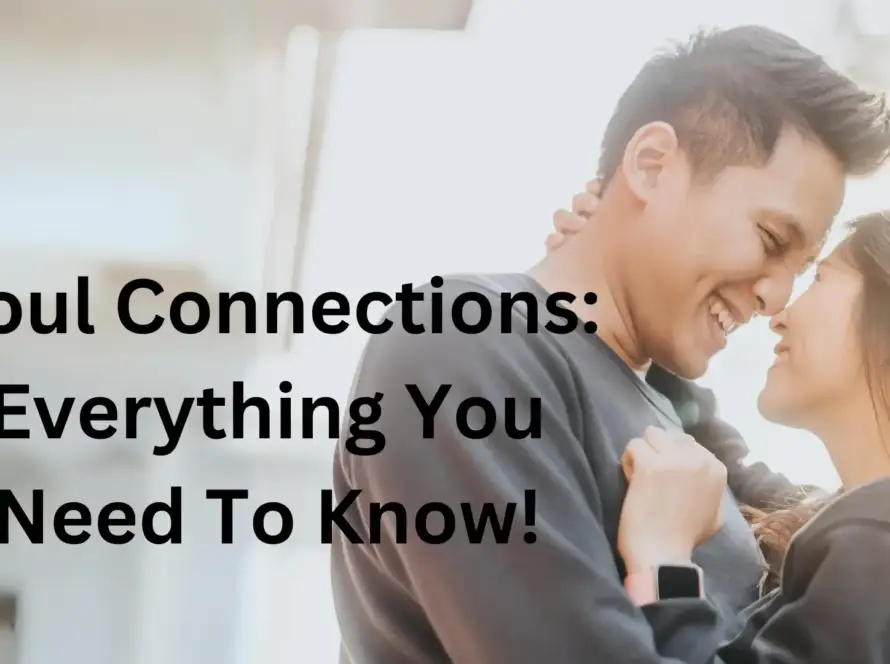
Emotional intimacy. It sounds a little fancy, right?
Like something out of a rom-com where the couple just gets each other after a two-minute montage of gazing into each other’s eyes.
But here’s the thing: emotional intimacy is the real magic behind strong, lasting relationships, and it’s way deeper than just sharing a few feelings here and there.
If you’ve ever wondered, “Why do we feel so close sometimes, but distant other times?” — emotional intimacy is the answer.
So, let’s get into it, and yes, I’ll throw in a few personal stories because, well, it’s all part of the fun!
What is Emotional Intimacy?
Okay, so let’s break it down: emotional intimacy isn’t just about knowing your partner’s favorite pizza toppings (although, seriously, who doesn’t need to know that?).
It’s about feeling like you truly know each other on a deeper level.
Like, you get them, even on their worst days. It’s the kind of closeness where you can sit in silence without it feeling awkward, because you both just know.
Emotional intimacy is that moment when you’re watching a movie, and they don’t even have to say anything. You know they’re crying on the inside about that one scene.
Or when they walk into the room and you can just feel their energy shift, even before they open their mouth to tell you how their day went.
It’s about the connection that runs beneath the surface!
Here’s the thing: we often mistake emotional intimacy for just sharing feelings.
Sure, sharing is important, but it’s more than that.
It’s not about dumping your day’s frustrations or spilling your entire life story in one sitting.
Emotional intimacy is the ongoing feeling of being seen, understood, and accepted as your true self.
It’s not about putting on a front.
It’s about letting someone into the messy, unfiltered version of you, and knowing they’re still gonna be there at the end of the day.
I had a friend who once thought she and her partner were emotionally connected because they were always talking about their day.
You know, the play-by-play: “What did you do today?” “How was work?”
But it wasn’t until they sat down and had a real conversation about their fears and dreams that she realized, “Oh wow, there’s so much more beneath the surface.”
Emotional intimacy isn’t just about chatting. It’s about connecting!
What’s wild is that you can be physically close and still feel emotionally distant.
I’ve had moments where my partner and I were cuddling on the couch, but it felt like we were on different planets emotionally.
That’s when it hit me: emotional intimacy doesn’t just happen because you’re together.
It happens when you choose to be present with each other, mentally and emotionally.
Another way to look at it?
It’s like an emotional safety net!
You know that no matter what happens, this person gets you.
They understand your quirks, your struggles, and they’ve seen you at your best and worst. And they’re still sticking around.
Emotional intimacy makes you feel safe to be your true self without fear of judgment or rejection.
It’s also about those little moments that build over time.
Maybe it’s that late-night conversation where you spill a secret you’ve never told anyone, or that time they knew exactly how you were feeling without you saying a word.
Emotional intimacy is built brick by brick in those everyday moments where you choose to be open, to listen, and to show up for each other.
And the best part?
It deepens over time!
It’s not like you reach a point where you’re “done” building emotional intimacy.
As your relationship grows, so does your connection. It’s an ever-evolving process, and that’s what makes it so beautiful.

Why Is It So Hard to Build?
Here’s the truth: emotional intimacy is tough.
I mean, it’s not like we’re born with a manual on how to open our hearts and share all our innermost thoughts without freaking out.
Vulnerability?
That’s scary.
No one wants to risk getting hurt or misunderstood, and let’s be honest, it’s way easier to binge Netflix together than to have that “deep talk.”
Opening up emotionally can feel like standing on a stage in your underwear: completely exposed, and hoping no one throws tomatoes.
It’s terrifying, but also kind of thrilling, right?
One of the biggest reasons it’s so hard to build emotional intimacy is fear.
Fear of rejection, fear of judgment, fear that your partner might not understand what’s going on inside your head.
And let’s face it: we’ve all been conditioned, in one way or another, to keep certain things to ourselves.
Whether it’s past heartbreaks or just general life experiences, those scars can make us build walls, not bridges.
We think, If I don’t share this, I can’t get hurt.
But here’s the catch: those walls don’t just keep out the bad stuff, they block the good stuff too.
For example, I used to keep my biggest insecurities to myself, convinced that my husband wouldn’t get it. I’d think,
Why would I bring this up?
It’s just going to sound ridiculous.
And yeah, it can feel awkward to say, “Hey, I have this weird fear that I’m not good enough sometimes.”
But holding back just means you never give your partner a chance to show you that they’ll love you, flaws and all.
And trust me, when you do finally let them in? You’ll often be surprised by their reaction. Probably way more understanding than you expected.
Another thing?
A lot of us have baggage!
I’m talking emotional luggage filled with all our past relationship issues, childhood stuff, or even just societal pressure to “have it all together.”
Maybe you grew up in a family where feelings weren’t really talked about, or maybe your last relationship left you with emotional bruises.
Whatever the case, past experiences can make us put up emotional shields without even realizing it.
We don’t want to risk getting hurt again, so we avoid getting too close in the first place.
It’s like, If I don’t let you in, you can’t hurt me.
But that strategy?
Yeah, it also blocks out the chance for deep connection.
Then there’s the other side: sometimes we just don’t know how to be emotionally intimate.
Maybe you’re all in, but your partner struggles with opening up.
It’s not that they don’t care. They just might not have the tools to express themselves or know how to navigate those deeper conversations.
For some, emotional intimacy doesn’t come naturally. It’s something that needs to be learned, practiced, and nurtured.
And that takes patience. Lots of it.
Also, life happens.
Between work, kids, stress, and the general chaos of adulting, who has time to sit down and unpack their emotions?
It’s easy to get caught up in the day-to-day grind and push emotional connection to the back burner.
You think: We’re fine. We talk. We laugh.
But if those conversations are more about grocery lists and weekend plans than about how you’re really feeling, emotional intimacy can start to fade without you even noticing.
Oh, and let’s not forget about control.
Being emotionally intimate means giving up control sometimes.
You don’t get to dictate how your partner will respond to your feelings, and that uncertainty can be super uncomfortable.
What if they don’t react the way you hope?
What if you’re left feeling even more alone after opening up?
That fear of losing control over how the conversation will go can make people avoid emotional intimacy altogether. I
t’s like jumping off a cliff and trusting the other person will catch you. And let’s be real, not everyone’s ready to make that leap.
Lastly, the digital age doesn’t help!
We’re glued to our phones, texting, scrolling, and sometimes it feels like we’re more connected to our screens than to each other.
We substitute deep, emotional conversations for quick texts and emojis, thinking: ‘Well, at least we’re communicating’.
But a heart emoji doesn’t build emotional intimacy, and scrolling TikTok next to each other isn’t going to deepen your connection.
The real work happens when you put down the screens, look each other in the eyes, and actually talk about what’s going on in your hearts and minds.
At the end of the day, building emotional intimacy is hard because it requires work, and not just the fun, cozy kind of work.
It requires facing fears, embracing vulnerability, and being patient with yourself and your partner.
But when you get it right, it’s the thing that makes a relationship feel real.
So, yeah, it’s tough, but it’s worth it.
And hey, nothing worth having ever came easy, right?

How to Open Up (Without Feeling Overwhelmed)
So, the idea of opening up can feel a little overwhelming, right?
We’ve all been there, staring at our partner, thinking,
Do I really want to get into this right now?
The thought of sharing your deepest insecurities, fears, or even those weird little thoughts can feel like you’re about to open Pandora’s box.
But guess what?
It doesn’t have to be all or nothing.
There’s a way to open up without feeling like you’re diving off an emotional cliff.
First tip: start small.
You don’t have to spill your entire life story in one go.
In fact, trying to dump all your emotions at once can feel overwhelming for both of you. Think of it like dipping your toes in the water instead of cannonballing straight in.
Start with sharing little things like, “Hey, I’ve been feeling a little anxious about work lately,” or, “I’m really excited about this new project, but I’m nervous too.” Small, manageable pieces of yourself.
I once started by telling my husband about a minor fear I had about messing up a work presentation. Nothing major, just something that had been on my mind.
And the response?
Super supportive!
That little bit of vulnerability made me feel safe to open up more over time.
And it snowballs from there: the more you share, the easier it gets.
Second tip: timing is everything.
You don’t need to open up when you’re both already stressed or distracted.
Maybe you had a rough day, and your partner just got home from work and hasn’t even taken off their shoes yet. Not the ideal moment to bare your soul.
Find a quiet, calm time when you can both be present.
Trust me, a late-night conversation over tea or during a lazy Sunday morning is prime time for those deeper talks.
Third tip: get comfortable with discomfort.
Here’s the thing: opening up feels vulnerable because, well, it is.
It’s totally normal to feel a little shaky when you’re about to share something personal.
But that nervousness?
That’s your heart stretching, getting a little more open.
It might feel uncomfortable at first, but that’s part of the process.
I remember the first time I told my husband about something really personal. My hands were literally shaking.
But once I got the words out, it felt like a weight had been lifted.
Sometimes, the discomfort is a sign that you’re about to deepen your connection.
Fourth tip: don’t expect it to be perfect.
Conversations about feelings can be messy.
You might stumble over your words, get emotional, or even say something awkward.
That’s okay!
Emotional intimacy doesn’t need to look like a polished scene from a movie.
In real life, these conversations can get a little bumpy, and that’s part of the beauty.
Your partner isn’t expecting you to have everything figured out. They just want you to be real with them.
Fifth tip: pace yourself.
If you’re someone who’s not used to being super open, it can feel like emotional overload to try and share everything at once.
There’s no rush!
Take your time.
If you’ve shared something vulnerable, let that sit for a bit before diving into more.
Emotional intimacy is built over time, not in one intense conversation.
I’ve found that sometimes, I’ll share something small and then wait a few days before I feel ready to go deeper.
That’s totally normal!
Sixth tip: trust your partner to meet you halfway.
One of the reasons opening up feels overwhelming is the fear that our partner won’t understand or will judge us.
But here’s a secret: most of the time, they’re just as nervous about opening up as you are.
They might be waiting for you to take the first step.
Trust that your partner wants to hear what you have to say. And even if their response isn’t perfect, remember that this is a learning process for both of you.
Bonus tip: you don’t have to do it all with words.
Sometimes, emotional intimacy isn’t about sitting down for a “big talk.”
It can be sharing through other ways: like writing a letter, sending a thoughtful text, or even just touching base with a hug or a meaningful look.
For some people, expressing emotions in writing feels safer than saying it out loud at first.
That’s okay too!
What matters is that you’re finding a way to express those deeper feelings.
At the end of the day, opening up is about creating a space where you can both show your real selves: messy, emotional, funny, awkward selves. And feel safe doing it.
It might feel overwhelming at first, but with practice, it becomes second nature.
And the result?
A deeper, more intimate connection with your partner.
So, take a deep breath, start small, and watch your relationship blossom in ways you never expected.

Emotional Intimacy During Conflict
Here’s a truth bomb most people don’t talk about: conflict can actually deepen emotional intimacy.
Yep, you heard that right.
I know we usually think of fights as these awful things that tear us apart, but in reality, how you handle conflict can bring you closer.
if you do it the right way!
It’s not about avoiding arguments (because, let’s be real, no relationship is argument-free), but about how you navigate those tough moments together.
When we’re in the middle of a fight, it’s easy to go into survival mode.
We defend ourselves, raise our voices, or sometimes shut down completely.
But here’s the catch: emotional intimacy thrives when you stay connected even during conflict.
That means resisting the urge to pull away or attack, and instead, focusing on understanding what’s really going on beneath the surface.
Most fights aren’t really about the dirty dishes or that sarcastic comment.
They’re about deeper feelings, hurt, fear, insecurity, that are bubbling up.
Here are a few tips on how you can handle arguments in a way that will actually improve the emotional intimacy in your relationship:
- Name the emotion, not just the problem.
During a fight, it’s easy to get stuck on the surface-level stuff. Who said what, who did what.
But that’s rarely the root of the issue.
Instead of focusing on the “thing” you’re fighting about, try naming the emotion behind it.
For example, instead of saying, “You never help with the housework,” try, “When I feel like I’m doing everything, it makes me feel unappreciated.” It’s a subtle shift, but it’s a game-changer because it brings emotional intimacy into the conversation.
You’re no longer just fighting about chores; you’re sharing how you feel underneath.
I once had an argument with my nusband about him being on his phone during dinner.
At first, I was like, “You’re always on your phone!” (total attack mode, right?).
But when I took a breath and really thought about it, what I was feeling was neglected: I felt like we weren’t connecting.
Once I said that, the whole tone of the argument changed. He put the phone down, and we had a real conversation about how we both needed more quality time together.
- Stay curious, even when you’re angry.
I know, it sounds counterintuitive. Who wants to be curious in the middle of a fight?
But honestly, asking yourself, Why is my partner reacting this way? can shift the whole dynamic.
Instead of getting defensive, you open up a space to understand their perspective.
Maybe they’re upset because they had a stressful day at work, or maybe they’re feeling insecure about something completely unrelated.
Emotional intimacy during conflict is about staying open to your partner’s experience, even when you’re upset.
- Take breaks, but don’t shut down.
Here’s the thing: sometimes arguments get too heated, and that’s okay.
You don’t have to solve everything in one sitting.
Taking a break can help you both calm down and gather your thoughts, but the key is to promise to come back to the conversation.
Walking away and never revisiting the issue?
That’s emotional disconnection!
But taking a 15-minute breather to cool off, then coming back with a clearer head?
That’s emotional intimacy!
It shows that you’re committed to resolving things, not avoiding them.
- Apologize, and mean it!
There’s nothing more intimate than a sincere apology during a fight.
Saying, “I’m sorry” isn’t a sign of weakness. It’s a sign of emotional maturity.
Apologizing doesn’t mean you’re admitting defeat or that the other person is “right.”
It means you’re acknowledging their feelings and showing that you care enough to make things better.
A real apology says, “I hear you, and I value this relationship enough to make amends.”
And trust me, when both partners can apologize and forgive, emotional intimacy deepens.
- Practice repair, not winning.
The goal of any conflict should be repair, not victory.
So many couples get stuck in the mindset of needing to “win” the argument, but that’s not how emotional intimacy works.
Emotional intimacy means caring more about the health of the relationship than being right.
It’s about saying, “Hey, this argument hurt, but I want to fix this because we matter more than this fight.”
One of the best things my husband and I started doing was checking in after a conflict, even after it was resolved, to ask, “Are we okay? How can we do better next time?”
- Use conflict as an opportunity to learn.
Every disagreement is an opportunity to learn more about your partner and yourself.
Maybe you discover a boundary you didn’t know you had, or maybe your partner shares something that gives you insight into why they react a certain way.
Emotional intimacy grows when you use conflict not as a wedge, but as a bridge to better understanding.
The more you learn about each other’s triggers, needs, and emotions, the better equipped you are to handle future conflicts with care and compassion.
- Lean into physical touch (if it feels right).
I know this sounds a bit odd during a fight, but sometimes a well-timed touch can help diffuse tension and remind you both that, even though you’re mad, you still care about each other.
A hand on the shoulder or even a hug (if it feels appropriate) can help ground both of you and reconnect on a physical level, which can support emotional closeness even when you’re upset.
It’s a way of saying, “We’re in this together.”
At the end of the day, emotional intimacy during conflict isn’t about avoiding fights. It’s about how you fight.
It’s about staying connected, even when things get tough, and using those difficult moments to grow closer, not further apart.
Remember, every conflict is an opportunity to deepen your emotional bond! You just have to approach it with an open heart and a willingness to understand each other.
It might be uncomfortable at first, but when you work through conflict with emotional intimacy in mind, you come out the other side feeling more connected and stronger as a couple.
Conclusion
Building emotional intimacy takes time, effort, and a lot of patience, but it’s one of the most rewarding things you can do for your relationship.
It’s about those small, everyday moments, whether it’s opening up in a conversation, offering a reassuring touch, or simply being patient with each other as you grow together.
Emotional intimacy isn’t something you rush, It’s something you nurture, and over time, it deepens into a connection that’s unshakable.
But here’s the thing: sometimes we need a little help to get the conversation going or to keep things light and playful while still deepening that emotional bond.
That’s where the Better Topics Card Game for Couples comes in!
It’s the perfect tool to improve communication, bond with your partner, and stay playful in your relationship, all while increasing emotional intimacy.
This game encourages fun, thoughtful conversations that help you connect on a deeper level, without feeling forced or awkward.
Imagine sitting down with your significant other, drawing a card, and suddenly finding yourself in a conversation you never expected. Whether it’s reminiscing about your favorite memories or learning something new about each other.
The questions are designed to help you communicate more openly, laugh together, and strengthen your emotional connection.
Plus, who says working on your relationship can’t be fun?
So, if you’re ready to take your communication, bonding, and emotional intimacy to the next level, give the Better Topics Card Game a try.
Grab it, sit down with your partner, and watch how this simple game can bring you closer than ever before.
Whether you’ve been together for months or years, there’s always more to discover about each other. And this game is the perfect way to keep that connection alive and thriving.
You won’t regret it!










